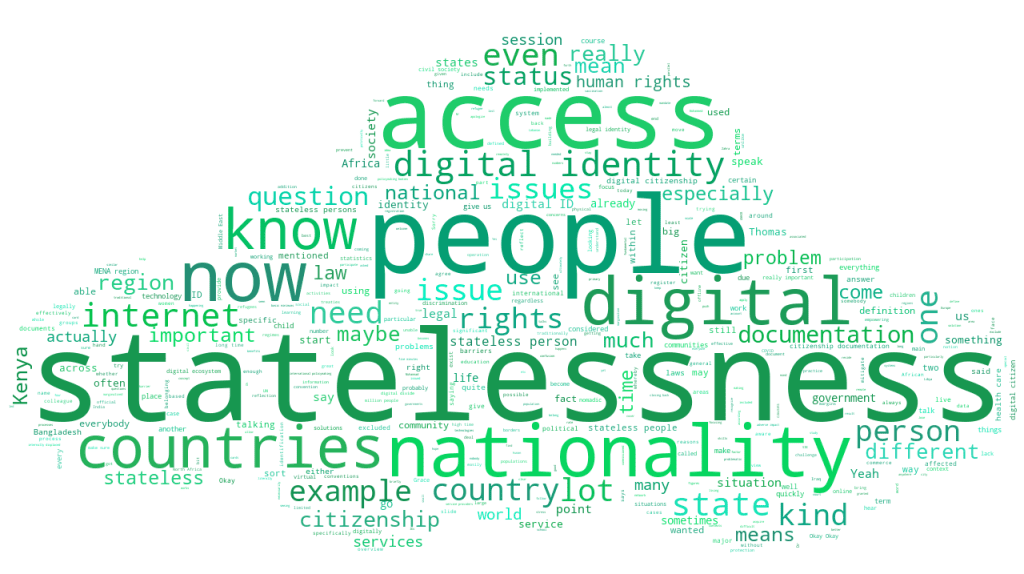The impact of digital citizenship on statelessness
30 Nov 2022 06:30h - 08:00h
Event report
A stateless person is an individual who is not considered to be a national of any state under the operation of its laws. Conversely, digital citizenship is typically defined through an individual’s actions rather than through a formal status of belonging to a nation state. A digital citizen uses the internet both regularly and effectively to participate in social and political life.
The origin of statelessness lies in the inception of the nation state system. Gender discrimination, conflict and displacement, administrative barriers, political tensions, and a patchwork of national legal procedures create obstacles to the reduction of statelessness. Long term migrants and their descendents, cross border populations, and vulnerable children who, among other misfortunes, were trafficked or subjected to forced marriage, are at risk of statelessness.
Digital citizenship may offer significant benefits to stateless populations across regions. Digital IDs may replace traditional forms of identification and enable every human, regardless of formal nationality, to access government services, social life, and basic human rights. Digital ID databases will ease the preservation, storage, and correction of identification records. Certainly, digital citizens will need access to equipment and an internet connection to realize the full potential of digital technologies.
As states embrace digital citizenship, they should not further marginalise stateless populations. The issue of statelessness should be taken into account when considering any policy, from policies regarding education and climate change to those regarding access to government services. Solidarity and exchange of practices should be conducted among stateless populations across regions. And statelessness should not exclude these communities from the digital ecosystem.
By Meri Baghdasaryan
The session in keywords
Related topics
Related event


